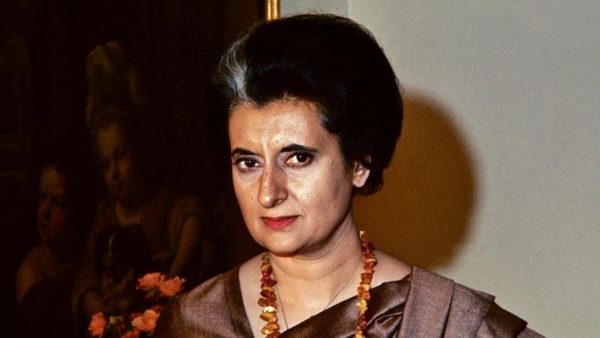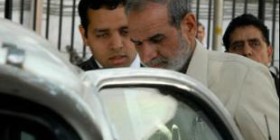Democracy today is the cult of the bahubali. The 56-inch chest, displays of power, bold flourishes and a roaring presence thrill voters. Indira Gandhi was India’s original sari-clad bahubali who watched over the nation’s borders like a knight astride a charging warhorse, as if ever-ready for battle. Any threat to India? Out to the front she galloped, flying the flags of belligerent patriotism. In December 1971, the Indian army ‘liberated’ East Pakistan after a short and decisive war. Bangladesh was created. After Bangladesh, Indira Gandhi was seen as Shakti incarnate, the petite virago who stared down the mighty bullying United States with the guts of a lioness. The only Indian Prime Minister to win a decisive military victory, dismember Pakistan and thumb her nose at the rest of the world, was a woman.
In Pakistan’s first general elections of December 1970, Sheikh Mujibur Rahman’s Awami League won an overwhelming victory, one that entitled the pipe-smoking Mujib to become PM of Pakistan. But Zulfikar Ali Bhutto, leader of the Pakistan Peoples Party, which had emerged as the single largest party in West Pakistan, and Pakistan’s military ruler General Yahya Khan refused to accept the Awami League’s victory.
When it looked as if the Awami League would be denied its place in the Pakistan National assembly, a powerful civil disobedience movement broke out in East Pakistan. Yahya responded with brute, merciless force, unleashing wave upon wave of slaughter, rapes, looting and burning by the Pakistani army. According to independent researchers 300,000 were killed and as many as 400,000 women were raped and children’s eyes were gouged out and their limbs roughly hacked off. Women’s breasts were torn out with specially designed knives. ‘Kill three million of them,’ Yahya said, ‘and the rest will eat out of our hands.’ Ravaged, frantic refugees from East Pakistan poured into India, reaching ten million at the height of the crisis. ‘What was claimed to be an internal problem in Pakistan had also become an internal problem in India,’ Indira said. In May 1971 she visited the refugee camps. PN Dhar, who accompanied her, writes: ‘What we saw defied description . . . their physical and mental state . . . their terror stricken faces and individual tragedies, assaulted our moral sensibility . . . the PM was so overwhelmed by the scale of human misery, she could hardly speak’.
‘The world must know what is happening here,’ said Indira, ‘we cannot let Pakistan continue this holocaust.’ She would warn the international community about Pakistan’s reign of terror, she would ‘waken the conscience of the world’. But Washington stayed deplorably quiet, even silenced officials who dared to speak up about the genocide, and supplied weapons to Islamabad. On a visit to India, US National Security Adviser Henry Kissinger indicated that, in the event of a war, India could not count on the US to play any part against Pakistan.
India needed friends. With the Indo-Soviet Treaty of Peace and Friendship sewn up, Indira Gandhi flew off on a twenty-one-day tour of Europe and America to build opinion among intellectuals and in the media. In a BBC interview, asked why India should not show more restraint on Bangladesh, with eyes flashing, Indira snapped, ‘When Hitler was on the rampage why didn’t you say let’s keep quiet, let’s have peace with Germany and let the Jews die?’ ‘That woman will not cow me down,’ fulminated Yahya Khan in an apparently drunken outburst. ‘I am not concerned with the remark,’ retorted Indira in response, ‘it shows the mentality of the person.’
She flew to the US in a last-ditch attempt to get the Americans to put pressure on Yahya Khan. But Indira, the tough lady from Delhi and Nixon, the ruthless Republican from California detested each other from the start. Nixon, according to Gary J Bass, found Indians repellent, was rude, snarled that Indira was ‘the old bitch’, and even said, ‘I don’t know why the hell anybody would reproduce in that damn country but they do’. Indira treated Nixon with the elegant condescension of a ‘professor praising a slightly backward student’, which Nixon found intolerable.
Former bureaucrat Moni Malhoutra recalls that at the state dinner that Nixon gave for Indira, she sat at the head of the U-shaped table next to the president, keeping her eyes completely closed through the dinner and refusing to speak. As she sat with her eyes closed, Nixon grew nervous. If he asked her a question, her answer would be laconic. She sat stock-still in front of all the guests with her eyes firmly closed all through a formal banquet. It was Indira’s version of a classy but deadly snub.
After her US trip, it was clear that Nixon would do nothing to help and India was on its own. On 3 December 1971 the Pakistanis bombed Indian airbases in the western sector. Indira was addressing a meeting in Calcutta when she heard the news. ‘Thank God they’ve attacked us,’ she said. India was now handed a reason to go to war. With generals Manekshaw and Aurora leading her armies, Indira Gandhi invaded East Pakistan.
Nixon was furious and denounced India’s ‘aggression’. A task force of the US Seventh Fleet, led by the nuclear warship Enterprise started to steam towards the Bay of Bengal in a ‘crude attempt at terrorizing India’. But Indira was defiant. On 12 December, at a public rally in Ram Lila Maidan, Delhi, as news of the Seventh Fleet’s advance on India exploded in the press and Indian fighter jets circled overhead to protect the gathering, she thundered, ‘We will not retreat. Not by a single step will we move back.’
The war was over in fourteen days. Before the Seventh Fleet reached the Bay of Bengal, Pakistan surrendered and the Indian army liberated Dhaka. Indira Gandhi had outwitted Nixon and Kissinger at a time when any loss of nerve could have meant all out war on India. On 16 December 1971, the Pakistan army surrendered to India in the largest surrender since the Second World War.
On the same day, Indira Gandhi announced in Parliament: ‘The West Pakistan forces have unconditionally surrendered in Bangladesh . . . Dhaka is now the free capital of a free country . . .’ The House rose in standing ovation. Uproarious cheering and celebrations erupted in Parliament and across the country. Atal Bihari Vajpayee reportedly called her ‘Abhinav Chandi Durga’. A nation humbled by the Chinese just a decade ago, bounded to its feet, its nationalism and moral purpose flying high.
The diminutive ‘pretty lady’ had stood as firm as a rock. She had outsmarted America, brought Pakistan to its knees and showed off to the world the gallant soldiering of the Indian armed forces. India was courage unbound, and India was a woman, with a streak of grey lightning in her hair.




Leave a reply